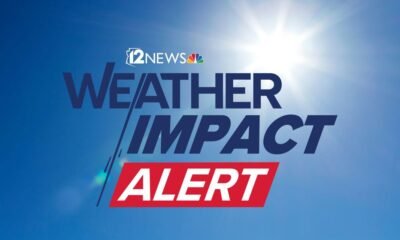Business
SCOTUS to Examine Arizona GOP-Led Challenge Against FCC Regulations

By Daniel Stefanski |
The Arizona Legislature has celebrated a notable legal win as the U.S. Supreme Court has agreed to hear the case of FCC v. Consumers’ Research, a decision made on November 22. This case will be consolidated with SHLB Coalition v. Consumers’ Research, focusing on a significant constitutional issue: the nondelegation doctrine. This principle asserts that Congress may not transfer its legislative powers to other entities, as defined by the Legal Information Institute at Cornell.
This ruling marks a substantial achievement for Arizona Republicans, who collaborated with state attorneys general nationwide to prompt the justices to consider the case. Arizona Senate President Warren Petersen played a crucial role in this congressional endeavor, emphasizing the need for accountability in taxation. He stated, “These carriers are unlawfully taxing the public to the tune of billions of dollars. Congress should instead determine what taxes our citizens are to pay and by how much, not unelected Washington bureaucrats.”
Consumers’ Research responded to the Supreme Court’s decision via their X account, stressing that “American citizens and consumers alike deserve basic accountability in government and in the marketplace.” They highlighted concerns that unelected officials were imposing taxes through recommendations from private corporations benefiting from the revenue.
The Arizona Legislature’s amicus brief was backed by 15 additional states, led by West Virginia’s attorney general. States including Alabama, Arkansas, and Texas joined the push for clarity regarding the nondelegation doctrine. In their brief, the attorneys general pointed out the need for a reevaluation of the statute, asserting that the Federal Communications Commission (FCC) presently extracts billions from consumers based on ambiguous legal language.
The brief argued, “Every year, the FCC extracts billions from American consumers based on a vague statute… the only limits on this multi-billion-dollar fee are vague notions like ‘quality’ service.” They implored the Court to assert that the legislative powers reserved for Congress should not be delegated to private organizations, regardless of the intentions behind such actions.
Previously, the U.S. Court of Appeals for the Fifth Circuit ruled in July that the taxation mechanism in question contravenes Article I, Section I of the Constitution, asserting that legislative powers must reside solely with Congress. The appeals court raised concerns about the FCC’s reliance on private entities to formulate these fees, suggesting this may violate the constitutional principle governing legislative authority.
Input from SCOTUSblog indicates that oral arguments are expected in the spring of 2025, with a decision likely announced by the end of the term in June or July.
Daniel Stefanski is a reporter for AZ Free News. You can send him news tips using this link.
















